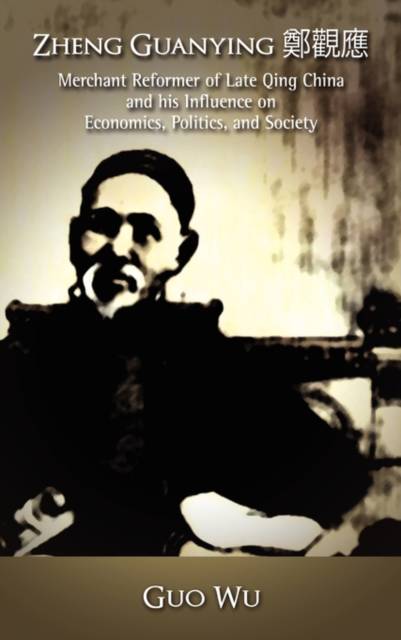
- Afhalen na 1 uur in een winkel met voorraad
- Gratis thuislevering in België vanaf € 30
- Ruim aanbod met 7 miljoen producten
- Afhalen na 1 uur in een winkel met voorraad
- Gratis thuislevering in België vanaf € 30
- Ruim aanbod met 7 miljoen producten
Zoeken
Zheng Guanying, Merchant Reformer of Late Qing China and His Influence on Economics, Politics, and Society
Guo Wu
Hardcover | Engels
€ 156,45
+ 312 punten
Omschrijving
In this first critical study of Zheng Guanying's career, cultural milieu, political and economic thoughts, as well as his spirituality, Guo Wu steers us into examining Zheng Guanying as a hybrid product of the late Qing treaty port culture, professionalism, and tradition, and he illuminates the contribution that this Chinese merchant made in the social and political transformation of China into an urban, commercial environment. This book is also valuable because there is an even greater dearth of research on the cultural environment of Zheng and his spirituality. First, he was a comprador merchant by profession and not a leader of political and intellectual movement, although it was the latter position that drew attention to him in past decades. Second, he was a committed modernizer but also avid practitioner of Daoism, which was then dismissed by researchers as conservative and superstitious. Third, he was more a moderate reformist than a political radical. In addition, the book covers the urbanization of China and the urban cultural space. It also reveals how Zheng's migration and sojourning between Guangdong and Shanghai shaped the formation of his reformist ideas in response to China's late-nineteenthcentury national crisis as well as how he upheld Daoism as his fundamental ideology to maintain national identity and pursue self-salvation. This comprehensive study of such a critical figure in China's political and social history is an important book for all collections in Chinese studies.
Specificaties
Betrokkenen
- Auteur(s):
- Uitgeverij:
Inhoud
- Aantal bladzijden:
- 302
- Taal:
- Engels
Eigenschappen
- Productcode (EAN):
- 9781604977059
- Verschijningsdatum:
- 8/06/2010
- Uitvoering:
- Hardcover
- Formaat:
- Genaaid
- Afmetingen:
- 152 mm x 229 mm
- Gewicht:
- 612 g

Alleen bij Standaard Boekhandel
+ 312 punten op je klantenkaart van Standaard Boekhandel
Beoordelingen
We publiceren alleen reviews die voldoen aan de voorwaarden voor reviews. Bekijk onze voorwaarden voor reviews.











